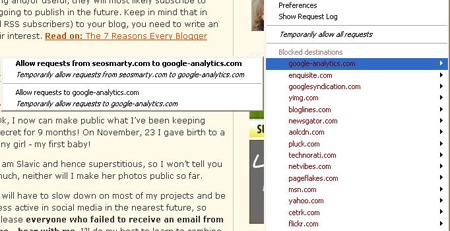Many sites are blocked in some countries – if you are located in the USA, you are probably unfamiliar with this problem (unless you are trying to figure out how to access blocked websites when at work, which I am sure you aren’t).
Or you just want to access a site anonymously (to prevent your IP address from being tracked or protect yourself from from online spying, phishing and pharming). Anyway, no matter what your reasons are, this week’s toolkit is dedicated to bypassing website access restrictions:
- Use Google cache (only helps for indexed pages, e.g. those that do not require to login or do not prevent Google from accessing it by meta tags or Robots.txt). Use cache: Google advanced operator to access the saved version of the page.
- Use IP address instead of the domain name (this won’t protect your online privacy but will allow to access some blocked sites): use this tool to convert any domain into the IP address.
- Use a public proxy server. PrimeProxies.com claims to offer the ultimate list of proxy servers and also continuously check if each of them works. Here is another (old) list: most of the proxy servers do not work any more, but if you check in the comments, you can find a few new ones. This article detailing how to access blocked sites also lists a few quite fresh proxy servers to use.
- Use online translation tools. Google Translate can perform the role of a public proxy server (but you will have to translate the page as Google doesn’t support “from English into English” translation).
- Get web pages via email: WebInMail is the newest service that will send you a page HTML copy to your email address (another wonderful service offered by the site is “search by email” feature by the way that sends you the copy of Google search results page). WebToMail is a similar and older service.
- Use tools allowing for anonymous browsing. Hopster (paid) hides your IP address to protect you from anyone who wants to know who you are while you’re on the Internet.
- Use FireFox addon to protect your privacy:
- Use any of the FireFox addons from the list allowing you to switch between available proxy configuration for save and anonymous browsing.
- RequestPolicy will block any cross-site requests (Google analytics, hotlinked images, etc) to protect you from any third-party attempts to access your browsing history and habits.
Cross-site requests are requests that your browser is told to make by a website you are visiting to a completely different website.





